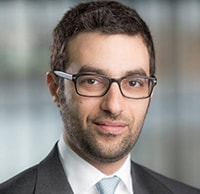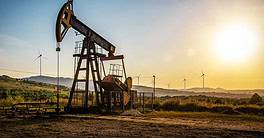As Qatar diversifies its economy away from oil revenues, QInvest CEO Tamim Al-Kawari says it sees strong growth potential across a range of industry sectors ranging from healthcare, agriculture and education to industrials.

Global Finance (GF): What has been the impact on QInvest of the Saudi embargo on Qatar?
Tamim Al-Kawari: The international, diversified nature of our business means that there is minimal impact on our business from any regional challenges. If anything, the divergent performance of local and international markets in 2017—and our strong track record in managing a diversified global portfolio of investments across real estate, credit and equities—has enabled us to enhance our relationship with prospective and existing clients.
GF: What is QInvest’s current main area of focus in terms of geography and sector?
Al-Kawari: We have three key business lines at QInvest: Investment Banking, Asset Management and Principal Investments, which focuses on real-estate, credit and equity investment. Presently, we are looking at new structuring investment opportunities across different asset classes, specifically the international real-estate market, debt and equity investments, and funds.
Financial institutions and real estate continue to be areas of focus, among other sectors. Real estate has had a solid 12 months despite a glut of capital targeting a sector which has seen high valuations, therefore making well-priced opportunities hard to source. The team recently closed multiple transactions across a range of geographies, including southern European real estate, multi-family assets in the US, a mixed-use portfolio in Greater London, as well as financing for the planning phase of a development in Scotland.
Within equity investment, in 2017 we completed the take-private of one of the UK’s most distinguished financial institutions alongside Atlas Merchant Capital. We are in the process of rolling out the company’s new strategy and business plan.
GF: What is the current investment pipeline like, and what deals can we expect to see this year?
Al-Kawari: At QInvest, we typically focus on niche markets and opportunities, which are noncorrelated to traditional asset classes. By offering high-quality shariah-compliant solutions, our offering is well-defined and recognized by different investment groups. Making such products’ funds accessible and understood is a priority for us, and we will continue to create innovative shariah-compliant products and services, which meet our clients’ needs and risk appetite.
We have seen a strong uptake across asset classes, including Real Estate Investment Trusts (REITs) and private debt, which are familiar to many regions around the world, but relatively new to the Middle East. Growth across the Gulf Cooperation Council’s key real-estate markets is driving the uptake of REITs in the region, and we expect the prevalence of REITs to increase significantly in the short- to medium-term.
A low interest-rate environment, combined with changing regulation and tightening liquidity, has led to banks becoming understandably reluctant to lend to the SME sector or higher-risk projects. This has increased both supply and demand for alternative sources of lending and an influx of companies offering private debt solutions, an area of business we are looking to grow.
GF: The regional investment sector is still challenging. Do you see any improvement this year or next?
Al-Kawari: While the recovery in oil prices to more than $60 a barrel has boosted investor sentiment across some asset classes in the region, political uncertainties continue. Domestically, in Qatar, we see strong growth potential in sectors such as healthcare, agriculture, education and industrials as the nation continues to diversify away from oil and prepares for the future. Transformative projects, such as the FIFA World Cup, represent catalysts for the regional economy.
We are also seeing other GCC nations reinforcing their plans to diversify their economies, moving into sectors like finance, trade and tourism. The biggest impact in the region has been the relaxing of government spending following initiatives to compensate for lower oil prices, such as the removal of subsidies and the introduction of VAT. Government budgets in 2018 are expansionary, which will create opportunities and boost activity across the wider economy.
Given the forecasted increase in the government’s surplus, we believe we will see the government focus on the next stage in Qatar’s economic growth. This view has only been solidified post-blockade, as the government is likely to follow through with support for the development of local businesses and a focus on self-reliance.



